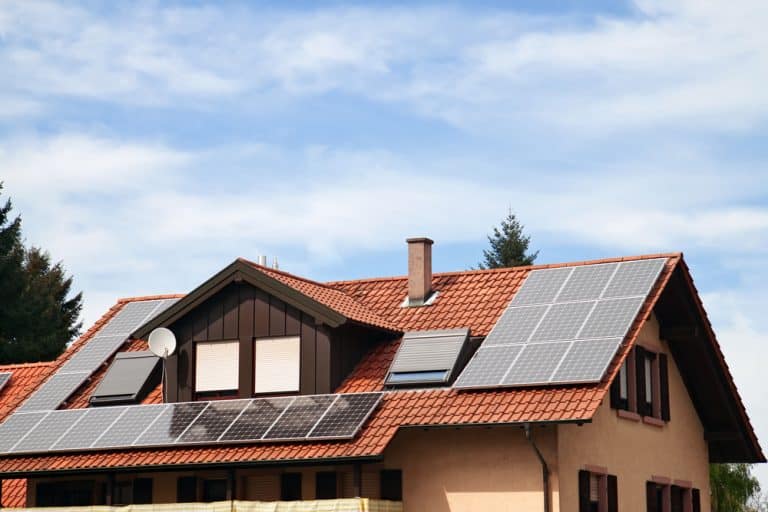Solar Panel Reliability: A Close Look

Electricity is a big deal. It powers our homes and the lifestyles we lead. Electricity, however, wasn’t always such an integral part of our lives.
Even after the invention of electricity, few had accesses to it. It took another fifty years after Thomas Edison invented the incandescent light bulb before the public started to power their homes with electricity. Now people not only have electricity, but they can choose where it comes from.
Electric companies have invested in different forms of electric generation. However, homeowners can too. One of the major homeowner generation methods is solar power.
However, because solar power is replacing fossil fuels used to power a home it is an investment. This is why it is important to determine how reliable this power source is.
Is Solar Energy Reliable?
Solar arrays are a great way to generate electricity with nothing more than the sun. Solar panels capture ultraviolet rays from the sun. These lightwaves bump electrons loose creating an electric current.
However, because solar panels are dependent on the weather, they don’t always produce electricity. To mend this problem, individuals use battery backup or the electric grid to power their lives when the sun can’t. To make their power even more secure some use the grid in combination with a solar backup option.
Backup options make solar more reliable than fossil fuels. This is due to the excess power generated from the sun is being stored. Individuals can then use this stored energy at their discretion.
What holds people back, however, is that they are now in charge of the maintenance of their mini power plant. The maintenance and longevity of these systems is a valid concern.
Solar Panel Failure
Because solar arrays are a piece of machinery it will eventually break down. Early solar panel failure, however, is not common.
Panels that underperform often have had either extreme heat or water ingress. Both of which can cause early corrosion. The good news is if a solar panel underperforms before its warranty expires, the manufacturer will replace it.
Because solar panels don’t have any moving parts they are less likely to break down. This being said, like other electronics, solar panels do corrode. Over time they will not work at the same capacity that they originally did.
How Long Solar Panels Last
Solar panel spec sheets give the panel’s life expectancy and rate of degradation. Go Solar Group uses Axitec’s monocrystalline solar panels.
These solar modules are warrantied to stay above 90 percent of the nominal performance for the first 15 years. They also have a guarantee that they will not degrade past 85 percent until 25 years after they are purchased.
Solar panels last between 20 to 30 years. However, they can last longer, they just won’t be as efficient.
How Reliable is Solar Energy?
Because solar panel warranties are lengthy, manufacturers put extra care into the quality of the components. They want to be sure that they are able to stand by their warranty.
To accomplish this, each solar cell goes through testing. It is then tested again after the solar module is assembled.
These tests make sure that each module meets the standards of the solar industry. The spec sheets for the brand and type of panel includes the testing results for the solar panel.
The Durability of Solar Panels
There are several different tests completed before the solar module is sent to solar panel suppliers and installers. These tests, in a nutshell, make sure that the panels are as durable as possible.
Manufactures use standard test conditions (STC) and nominal operating cell temperature (NOCT) along with International Electrotechnical Commission (IEC) testing. If the module doesn’t meet these standards, it isn’t allowed on the delivery truck.
Replacing Solar Panels
Although every solar panel is tested, sometimes mistakes happen. This, however, is easily remedied. All the solar customer has to do is inform their solar installer and they will take care of the rest.
If the fix/replacement is not covered by the panel warranty it may not have to come out of the homeowners pocket. Owned solar panels can be included in homeowners insurance.
Often it doesn’t increase the insurance rate to add the home’s solar array. However, it is wise to make sure.
Solar Panel Quality Comparison
Although all solar panels go through testing they are not all the same. When it comes to choosing solar the type of solar panel makes a huge difference.
There are several different solar panel types out there. Some of these solar panels are on the market. While others are still in the testing stages.
Finding the best one is dependent on buyers priorities.
Deciphering Between Solar Panel Types
The main solar panel types include monocrystalline, polycrystalline and thin-film. Each of these solar panel types uses a semiconductor to generate an electric current. However, each of them has different efficiencies which determines how much power it will produce.
Monocrystalline solar panels come from one silicon crystal. They typically have efficiencies in the 20 percent range.
Polycrystalline solar panels use silicon crystal fragments. Because the silicon isn’t whole its efficiency is typically about 15 percent.
Thin-film solar panels use a wide verity of semiconductors. Depending on the type of thin-film panel it can have anywhere from 7 to 20 percent efficiency ratings.
Solar Panel Efficiencies Over Time
Another thing to look at is the efficiency of the panels over time. Generally speaking, solar panels will degrade about 1 to 3 percent every year.
Looking for a solar panel with a lower degradation per year will ensure a longer life for your solar array. You can also increase the efficiency of your solar array by cleaning the solar panels at least once a year.



Send a Message
Oops! We could not locate your form.